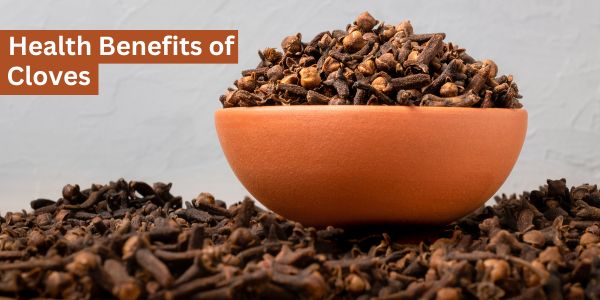Benefits and Uses of Castor Oil
Castor oil isn’t just that mysterious bottle lurking in your grandma’s medicine cabinet; it’s a true powerhouse, a hidden gem that has been cherished for centuries. Whether it’s pampering your skin, strengthening your hair, or even aiding digestion, castor oil is like nature’s Swiss Army knife: versatile, reliable, and packed with unexpected benefits.

In today’s write-up, we’re diving deep into the wonderful world of castor oil, uncovering its surprising uses and game-changing benefits. So, if you’re ready to unlock the secrets of this liquid gold, buckle up and join us on this journey!
1. Promotes Hair Growth

If your hair dreams involve Rapunzel-like locks, castor oil might just be the magic potion you need. This thick, nutrient-rich oil works wonders for your scalp and hair health.
Packed with omega-6 fatty acids, castor oil boosts blood circulation to your scalp, ensuring that your hair follicles receive a steady flow of oxygen and nutrients. More nutrients mean stronger roots, faster growth, and less breakage, exactly what you need for long, healthy hair!
Another study conducted in 2015 suggested that omega-6 fatty acids, found in castor oil, increase blood circulation to the scalp, promoting faster and healthier hair growth.
And let’s not forget the superstar ingredient: Vitamin E! This powerful antioxidant helps repair damaged hair follicles, making your strands more resilient against split ends and thinning.
A 2003 study published in the Journal of Cosmetic Science found that ricinoleic acid, a primary component of castor oil, significantly improved hair growth by enhancing follicle health and circulation.
Applying it is a breeze; just massage a few drops into your scalp, work it through your hair, and let it sit for at least 30 minutes (or overnight for deep nourishment). But be patient! Like any great transformation, results take time, usually a few weeks to a couple of months.
2. Thickens Eyelashes and Eyebrows

Ever wished for naturally fuller brows or longer, fluttery lashes? Forget expensive serums; castor oil is an affordable, all-natural alternative that delivers incredible results.
Rich in essential fatty acids, vitamins, and proteins, this oil penetrates deep into hair follicles, strengthening them from the inside out. The result? Reduced shedding, stronger roots, and visibly thicker brows and lashes.
A study in the International Journal of Trichology (2016) emphasized the importance of fatty acids in hair follicle nourishment.
Application is simple: Dip a clean mascara wand or cotton swab into a small amount of castor oil and carefully swipe it over your lashes and brows before bedtime. Stick to this routine, and in a few weeks, you might just say goodbye to sparse brows and hello to bold, beautiful definition.
3. Treats Skin Conditions

Castor oil is like a superhero for your skin. Thanks to its antibacterial and anti-inflammatory properties (courtesy of ricinoleic acid), it can help combat acne, soothe irritation, and even speed up wound healing.
Got dry, flaky skin from eczema or psoriasis? Castor oil forms a protective barrier that locks in moisture and calms inflammation. Simply dab a little on the affected area, massage gently, and let it do its thing.
A 2017 study published in the Dermatology Research and Practice Journal found that natural oils, including castor oil, help improve skin hydration and reduce inflammation in eczema patients.
And if scars or stretch marks are your concern, castor oil has got you covered there, too! With regular application, it can help fade scars over time while boosting collagen production to keep your skin youthful and elastic.
A study in the Journal of Ethnopharmacology (2012) found that castor oil effectively reduces acne-causing bacteria, making it useful for treating breakouts.
Oh, and sunburns? Castor oil’s anti-inflammatory properties can help ease the redness and discomfort, giving you much-needed relief after too much fun in the sun.
Also Read: 10 Foods You Should Never Refrigerate
4. Moisturizes Skin

Think of castor oil as a tall glass of water, but for your skin. It’s an incredible moisturizer that deeply hydrates and nourishes, thanks to its humectant properties that draw moisture from the air into your skin.
A study published in the International Journal of Molecular Sciences (2021) highlighted the humectant properties of castor oil, meaning it attracts moisture from the air, keeping your skin hydrated and supple.
If you struggle with dry patches, rough elbows, or cracked heels, a few drops of castor oil can work wonders. Plus, it’s loaded with antioxidants that fight free radicals, helping to slow down premature aging and keep your skin looking radiant and youthful.
5. Fights Acne

Acne sufferers, rejoice! Castor oil is a natural enemy of pimples and breakouts. Its antibacterial properties target acne-causing bacteria, while its fatty acids help balance moisture levels, preventing excessive oil production that clogs pores.
A 2015 study in the Journal of Clinical and Aesthetic Dermatology confirmed that ricinoleic acid found in castor oil reduces inflammation and prevents breakouts by balancing sebum production.
To use it, simply dab a small amount onto blemishes before bed. With consistent use, you might notice clearer, calmer skin in just a few weeks.
6. Natural Laxative

Okay, let’s talk digestion. Castor oil has been used for centuries as a natural laxative, and for good reason—it works like a charm!
The key player here is ricinoleic acid, which stimulates bowel movements and helps relieve occasional constipation. Just mix a small amount with juice or water (because, let’s be honest, it doesn’t taste great on its own), and within a few hours, you should feel relief.
A randomized clinical trial published in Complementary Therapies in Medicine (2019) found that castor oil significantly improved bowel movement frequency in elderly patients suffering from chronic constipation.
A quick word of caution: Don’t overdo it! Taking too much can lead to diarrhea, so always follow recommended dosages and consult a healthcare professional if needed.
7. Reduces Joint Pain

If stiff, aching joints have been slowing you down, castor oil might be the relief you’re looking for. It’s packed with anti-inflammatory compounds that help soothe soreness and improve circulation.
A study in the International Journal of Pharmaceutical Sciences and Research (2017) confirmed that castor oil has anti-inflammatory properties, making it effective for alleviating joint pain, arthritis, and muscle soreness.
For best results, warm up some castor oil and massage it directly onto your joints. To boost its effectiveness, create a castor oil pack—soak a cloth in warm oil, place it on the sore area, and cover it with a heating pad for about 30 minutes. Ahh, sweet relief!
Also Read: 9 Health Benefits of Pumpkin
8. Promotes Wound Healing

Castor oil doesn’t just soothe the skin; it actively helps it heal. Its antimicrobial and anti-inflammatory properties make it a fantastic natural remedy for minor cuts, scrapes, and burns.
A 2018 study published in the Journal of Wound Care revealed that castor oil enhances wound healing by reducing excessive inflammation and promoting tissue regeneration.
By keeping wounds moist and preventing bacterial infections, castor oil speeds up the healing process while minimizing scarring. It’s like a first-aid kit in a bottle!
9. Natural Anti-Inflammatory

Castor oil isn’t just great for external use; it also has powerful internal benefits. Thanks to its high concentration of ricinoleic acid, it acts as a natural anti-inflammatory agent, helping to reduce pain, swelling, and irritation in the body.
According to a study published in the International Immunopharmacology Journal (2020), ricinoleic acid helps reduce pain and inflammation in patients with chronic inflammatory conditions, such as arthritis and muscle stiffness.
Many people use it as a massage oil to relieve muscle tension and soreness. Whether you’re dealing with post-workout stiffness or everyday aches, a little castor oil massage can make a big difference.
10. Softens Lips

Chapped lips? Castor oil to the rescue! Unlike many lip balms that just sit on the surface, castor oil deeply penetrates and hydrates, creating a protective barrier that locks in moisture.
A 2017 study published in the International Journal of Cosmetic Science showed that castor oil’s fatty acid composition helps retain moisture and prevent chapping, making it a great alternative to chemical-based lip balms.
Just apply a tiny drop to your lips before bed and wake up with a soft, kissable pout.
Conclusion
From head to toe (literally), castor oil is an all-natural powerhouse with benefits that extend far beyond what most people realize. Whether you’re using it for hair growth, glowing skin, pain relief, or digestive health, this age-old remedy proves time and time again why it deserves a spot in every household.




